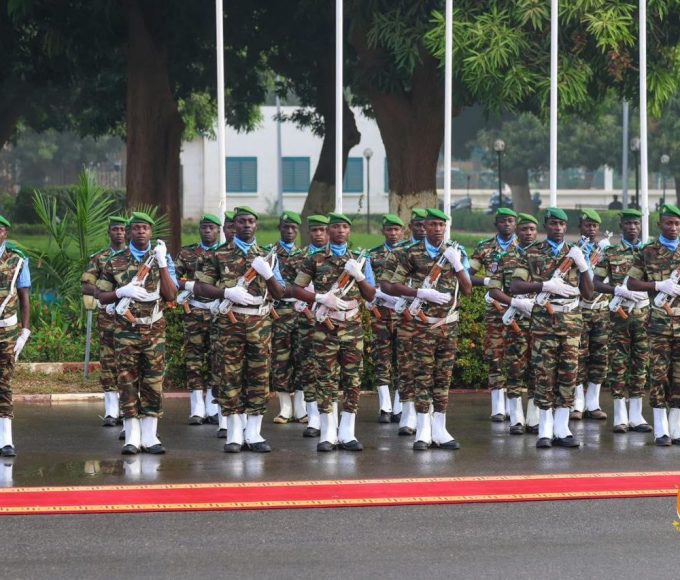
Floods and Insecurity Threaten Food Supply in Nigeria, 30 Million Risk Acute Hunger

As Nigeria enters the peak of the 2025 rainy season, new projections from the Global Report on Food Crises (GRFC) warn that approximately 30.06 million Nigerians, or around 15% of the population, will face high levels of acute food insecurity between June and August of 2025.
This alarming figure represents a marginal drop from the 31.8 million affected during the same period in 2024. However, 1.2 million Nigerians are projected to experience emergency-level hunger (CH Phase 4), a stark indicator of deteriorating conditions.
The March 2025 GRFC country report for Nigeria identifies three primary and persistent drivers of the food crisis: insecurity, flooding, and economic instability. These factors, though solvable, remain deeply entangled in political gridlock.
Flooding: Farmlands Submerged, Harvests Lost
Nigeria’s agricultural sector continues to be battered by devastating floods, with the 2024 floods affecting over 1.2 million people across 31 states and submerging more than 700,000 hectares of farmland, resulting in massive losses of staple crops, including rice, maise, cassava, and vegetables. The economic toll is vast, contributing to post-harvest losses worth billions of naira annually, and has compounded Nigeria’s already fragile food systems.
Flooding has become a recurring nightmare for farmers, many of whom lack access to insurance, mechanised tools, or storage facilities to cushion the impact. Despite warnings from climate scientists and environmental agencies, investment in flood-resilient infrastructure, such as drainage systems, levees, and water-retention reservoirs, has been limited, inconsistent, and often politicised.
Dr. Muhammad Abubakar, Nigeria’s former Minister of Agriculture and Rural Development, noted as early as 2022 that flooding, alongside terrorism, was one of the main forces undermining national food security.
Insecurity: Terrorism Keeps Farmers Off Fields
Beyond the floods, widespread insecurity, particularly in the northeast, northwest, and Middle Belt, has pushed countless farmers off their land. Armed groups, including Boko Haram, ISWAP, and various local militias, have turned once-thriving agricultural zones into war zones. These attacks have not only displaced farming communities but also disrupted supply chains and local markets, creating fear among potential cultivators.
The contraction of farming activity in these violence-prone areas has shifted the food production burden onto relatively safer southern and central states, which are themselves grappling with insecurity under the Tinubu government. Meanwhile, the internally displaced populations, many of whom were previously self-sufficient, now rely on aid or overpriced food in camps where resources are already stretched thin.
Economic Strain: Fuel Prices and Currency Devaluation Worsen Food Prices
Nigeria’s economic challenges have exacerbated the situation. Following the removal of fuel subsidies and the continued devaluation of the naira, the cost of fuel, transportation, and imported food items has surged. These price hikes affect every stage of the food value chain, from planting to harvesting to transportation, ultimately raising the cost of food for consumers already dealing with shrinking incomes.
With fewer crops harvested and more expensive logistics, food inflation has soared, making even locally grown staples unaffordable for millions. The urban poor and low-income rural households are hit the hardest, often forced to skip meals or rely on less nutritious food alternatives.
A Cascade of Consequences: Malnutrition, Disease, and Displacement
The knock-on effects of this multifaceted crisis are severe. Rising food insecurity has led to a surge in malnutrition rates, especially among children under five and pregnant women. Health facilities across the country have reported increasing cases of stunted growth, anaemia, and diet-related illnesses. The situation is particularly dire in conflict-affected areas, where access to healthcare is limited and humanitarian agencies face operational constraints.
Displacement from violence and floods is also contributing to overcrowded camps, poor sanitation, and a higher risk of disease outbreaks, including cholera, typhoid, and malaria.
Government Silence: No Clear Response from Tinubu Administration
Despite the gravity of the food crisis and the data now made public by the GRFC, the administration of President Bola Tinubu has yet to issue a formal public response. There have been no national addresses, strategic plans, or coordinated federal relief efforts announced regarding the worsening food insecurity.
Many Nigerians have expressed concern that the government’s silence could indicate a lack of urgency or political alignment regarding food security. This issue is now threatening the lives of millions. Many warn that without a proactive stance from the highest levels of leadership, the situation may spiral out of control and become irreparable.
Political Will: The Missing Link in Nigeria’s Food Security Chain
While the technical solutions to these problems are well-documented, ranging from flood-resilient infrastructure to enhanced security operations, implementation remains hindered by a lack of political will.
Resolving Nigeria’s food crisis requires decisive and non-partisan leadership, leadership willing to prioritise food security above political interest. This includes tackling terrorism with a unified security strategy, investing in early warning and flood-control systems, supporting farmers with inputs and insurance, and enforcing policies that stabilise the market for both producers and consumers.
Food security isn’t just about farming. It’s about governance, equity, and survival. If the government can’t secure land for farmers or protect harvests from floodwaters, we’re not just losing crops, we’re losing lives.
The consequences of inaction are dire:
A generation at risk of malnutrition, a nation burdened by poverty and disease, and a rural economy suffocated by fear and neglect. Without urgent interventions, millions more could be pushed into hunger and despair.
The hunger crisis in Nigeria is not just about food;
It is a reflection of political failure and misplaced priorities. Real leadership means rising above partisanship to save lives.
Read More:
- Betrayed at the Starting Line: Why Nigerian Athletes Are Switching Flags
- Nigeria: Soldiers, Security Guards, Civilians Killed in Multiple Bandit Attacks in Zamfara
About The Author
Mayowa Durosinmi
author
M. Durosinmi is a West Africa Weekly investigative reporter covering Politics, Human Rights, Health, and Security in West Africa and the Sahel Region
Mayowa Durosinmi
M. Durosinmi is a West Africa Weekly investigative reporter covering Politics, Human Rights, Health, and Security in West Africa and the Sahel Region
Related Articles
The AFCON Final in Morocco and the Controversies That Followed
The Africa Cup of Nations final between hosts Morocco and Senegal ended...
ByWest Africa WeeklyJanuary 20, 2026Mali’s Transition Leader Attends Swearing-In of Guinea’s President Mamadi Doumbouya
Mali’s President of the Transition, General Assimi Goïta, represented the country in...
ByWest Africa WeeklyJanuary 19, 2026Malian Army Conducts Successful Surveillance Operation in Mopti Region
The Malian Armed Forces have carried out a successful territorial surveillance operation...
ByWest Africa WeeklyJanuary 19, 2026Niger’s Security Forces Record Major Gains Against Armed Groups
Niger’s Defence and Security Forces have reported significant results following a week...
ByWest Africa WeeklyJanuary 19, 2026












Leave a comment